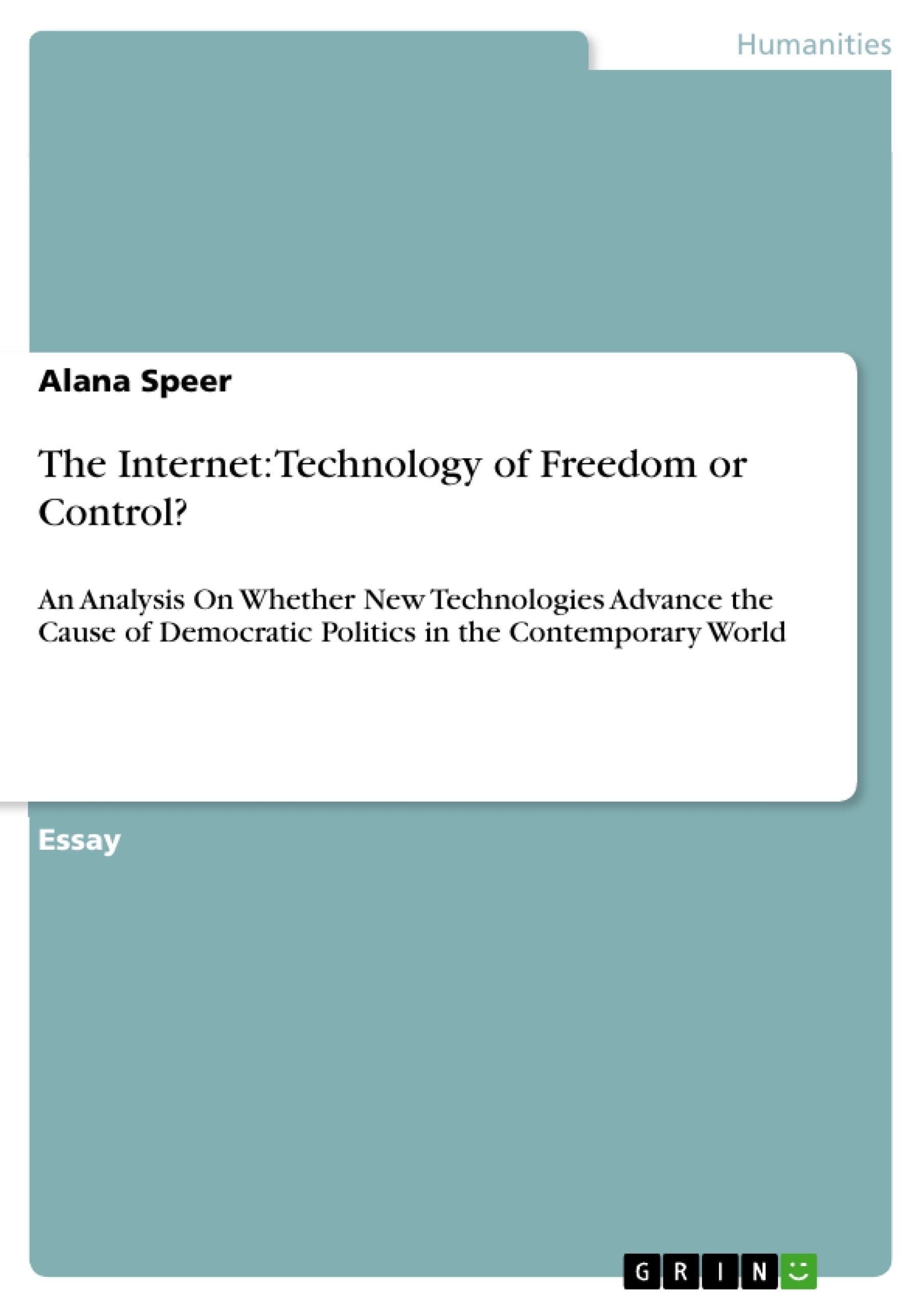“The 'Twitter Revolution' in Iran, the clean democratic elections in Egypt following their revolution that ousted Mubarak, the overthrow of Gaddafi in Libya, Occupy Wall Street, and even the 6 million people who took to the streets earlier this month in Syria -- all were aided by the technological advances that have decentralized the flow of information. Who would have dreamed a hashtag would transform journalism, empowering individuals to report the news in real time?” (Fox 2012)
Since the globalisation of the internet, it has been widely discussed if those new technologies help advance the cause of democracy in the contemporary world. Over the past decades, the internet has evolved into more than just a place for people to meet, in many ways. There are two opposite views of the contribution of the internet to democracy. William H. Dutton, professor of Internet Studies at the University of Oxford, says that those two opposite views see the internet as “either a technology of freedom or control.” (Dutton 2007: 4) Hereby, “the optimistic view is that the Internet will tend to democratise access to information and undermine hierarchies” (4), whereas the negative view is that governments, institutions and companies will use the internet to extend their “control of existing institutional structures and organizational arrangements.” (5) Dutton describes the most extreme form of that kind of control as a surveillance society, an image that strongly resembles the dystopian state of surveillance in George Orwell's 1984. In the following part I am going to trade the positive influence of the internet on democracy off against the possible negative consequences the internet could have on the process of democratisation.
Inhaltsverzeichnis (Table of Contents)
- Introduction
- Contribution of the Internet to a Democratic Society
- Access to Information
- The Internet as a Means of Education
- The Internet Promotes Equality
- The Internet as a Tool for Political Activism
- The Internet as a Tool for Organizing the Masses
- Conclusion
Zielsetzung und Themenschwerpunkte (Objectives and Key Themes)
This essay explores the complex relationship between the internet and democracy in the contemporary world. It aims to analyze whether new technologies advance the cause of democratic politics, considering both the potential benefits and drawbacks. The essay examines the various ways in which the internet can contribute to democratic processes, while also acknowledging the risks posed by its misuse and the potential for control and surveillance.
- The internet's role in promoting access to information and freedom of expression.
- The internet's potential to facilitate political activism and social movements.
- The risks of internet surveillance and censorship, and the potential for authoritarian regimes to exploit new technologies.
- The impact of the internet on equality and the emergence of new forms of participation.
- The changing dynamics of media and the rise of alternative news sources.
Zusammenfassung der Kapitel (Chapter Summaries)
The essay begins by introducing the central debate surrounding the internet's role in democracy, outlining the opposing views that see it as either a technology of freedom or control. It then explores the positive contributions of the internet to democratic society, focusing on its role in promoting access to information, education, and equality.
The essay then examines the internet's role in political activism and social movements, highlighting its ability to empower individuals and groups to mobilize and organize. It provides examples of how the internet has been used to promote democratic causes, such as the Anti-ACTA movement and the Arab Spring.
The essay also addresses the potential for the internet to be used in ways that undermine democracy, such as through censorship and surveillance. It explores the concerns surrounding the rise of a surveillance society, as well as the risks of authoritarian regimes exploiting new technologies for their own ends.
Schlüsselwörter (Keywords)
This text delves into the intersection of technology and democracy, focusing on the internet's potential to both advance and threaten democratic processes. Key concepts explored include access to information, freedom of expression, political activism, social movements, censorship, surveillance, equality, and the changing media landscape.
- Arbeit zitieren
- Alana Speer (Autor:in), 2013, The Internet: Technology of Freedom or Control?, München, GRIN Verlag, https://www.hausarbeiten.de/document/281271


